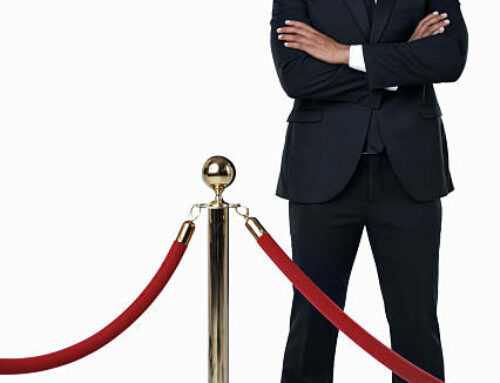They just held a gatekeeper rally for over 20,000 gatekeepers in the greater Los Angeles area at the Staples Center. The motivational speakers they had on hand to train, coach and inspire the gatekeepers were Tony Robbins, Dwayne the Rock Johnson and Arnold Schwarzenegger. They spent a full day running these gatekeepers through live drills on how to screen your calls. The gatekeepers left that rally shot out of a cannon.
Guess who you have to help you interact with these motivated gatekeepers? This guy? Steven Johnson, the guy that has made over 150,000 calls and interacted with gatekeepers on virtually every one of those calls.
As you painfully know, the gatekeeper is anyone who blocks you from contacting the decision maker: a receptionist, secretary or an executive assistant. Depending on the level the decisionmaker is in the company you are calling, you can potentially come across all three.
From my experience the three things a gatekeeper needs to know about you before putting your call through to the decision maker are:
- Who are you?
- What company are you with?
- What is this regarding, about, in reference to, or are they expecting your call.
The person who asks questions is in control of the conversation; therefore, you want to identify yourself and the company you work for upfront to eliminate the two most common questions the gatekeeper will ask. It might sound something like this.
Good morning, this is Steve Johnson with the Next Level for Bill Smith, please (strategic pause).
You noticed the use of the strategic pause after I say the word please. The way I say the word “please” as a statement, not a question, indicating that I believe with every fiber of my being my call will get put through to the decision maker. That belief system alone will get you through to more decision makers. If Michael Jordan called anyone and said
Good morning, this is Michael Jordan for Bill Smith, please (strategic pause).
He would believe his call would go through because he is Michael Jordan. While you are not him you need to think like him in that no matter who you called you would believe that your call would get put through.
In addition to my voice tone, notice that I am not saying any words that don’t work like
- Is Bill Smith in?
- Is Bill Smith available?
- Can I speak with Bill Smith?
From my experience if you ask these questions you are shooting yourself in the foot and giving the gatekeeper the opportunity to say that Bill Smith is not in, or even if he is in, he is not available.
This strategy will improve your odds over time because it is somewhat unconventional and gets the gatekeeper out of their rhythm which is:
- Who are you?
- What company are you with?
- What is this regarding?
When they don’t get the opportunity to ask these first two questions immediately because you answered them with your opening line, your chances increase ever so slightly of getting through to the decision maker. If the gatekeeper did not hear my name correctly the first time, they will often ask “What was your name again”? What I do then is apologize because I was probably talking too fast in my introduction. I will slow down and restate my name like this.
I’m sorry. This is Steve Johnson. Thank you. (strategic pause).
What is different about this is the ‘thank you’ and the use of a strategic pause. One more time it goes like this.
I’m sorry. This is Steve Johnson. Thank you. (strategic pause).
The gatekeeper asked me for my name and I told them the truth. It is Steve Johnson. The strategic pause after the thank you will increase your odds of getting through to the decision maker because it is an unanticipated approach. You say thank you in a way that comes across as a statement and sounds like you assume your call will be put through.
At this point, your call may be put through. However, the gatekeeper may have one more question they want to ask, which is: What is this regarding? We will cover how to answer that question on another video titled the “four magic words to use with the gatekeeper”.
When you have made as many calls as I have and have been rejected as many times as I have, you become amazingly open minded to what else is out there. When I initially tried out these strategies, they felt uncomfortable at first, but I found they actually worked better than what I was doing. I discovered I would rather be uncomfortable doing things that worked, rather than comfortable doing things that didn’t work. What to do? Pick up the phone and make a call. The time is now!!!






